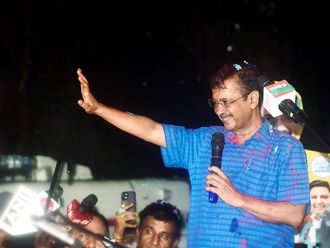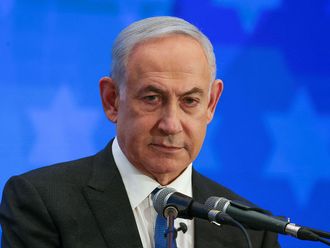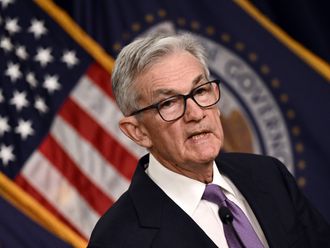
Iraq is expected to have a fully functioning government in less than a month now that President Jalal Talabani has formally asked Nouri Al Maliki to form a new cabinet. Parliament convened two weeks ago to reappoint Talabani as president after nearly nine months of political deadlock.
Irrespective of how the ministries are distributed it is now clear that Al Maliki and his State of Law coalition are the ultimate victors, having retained the premiership and preventing real power falling into the hands of rivals across the ethno-sectarian spectrum.
For the next four years it will, therefore, be Al Maliki who will be dictating Iraq's domestic affairs with or without the support of his so-called coalition partners. This becomes particularly significant for the US, which is expected to complete its troop withdrawal at the end of 2011, and is hoping it can work with Al Maliki to ensure that it leaves the country in a condition favourable to its long-term interests in the region.
On the minds of Washington's policy- and decision-makers will be the extent to which Iran will have a stranglehold on the country once the US leaves. If Washington and its allies in the region truly want to manage Iranian influence when the withdrawal materialises then they need to start formulating policy around Al Maliki himself.
Iran continues to successfully play its carefully planned, ruthless and strategic game in Iraq. It has audaciously sidelined historic ally the Islamic Supreme Council of Iraq (ISCI), which has just 17 seats to its name, and replaced it with Muqtada Al Sadr's bloc, the effective grassroots movement that won nearly 40 seats in the elections.
As an indication of the level of influence that Iran now has over the Sadrists, it was Tehran that directed Al Sadr to back his arch-enemy Al Maliki in October, in effect ending Allawi's hopes of becoming premier and preventing power returning to Iraq's Sunni-Arab leadership.
That may mean Al Maliki now owes Iran. Yet the fact is that the Iranians had no other choice: back Al Maliki or risk Iraqiya taking power. In fact, Sadrist and Iranian backing is more of a strategic catch for Al Maliki given that it was he, who in 2008, deployed the Iraqi army to oust Sadrist militias from Basra.
Sadrist militias and other splinter groups armed, forced underground as a result of the 2008 Basra operation and funded and trained by Iran, may still cause headaches for Al Maliki and challenge the security environment.
However, this will not be tantamount to challenging the increasingly effective Iraqi security forces and indeed challenging Al Maliki himself, who holds effective control over them.
Much to Iran's advantage, both Talabani and Masoud Barzani, President of the Kurdistan region and leader of the Kurdistan Democratic Party, rejected US pleas to give Allawi the presidency. However, that had more to do with Barzani wanting to make sure Talabani stays in Baghdad, lest he should return to undermine his authority in any way.
Iran benefits from the fact that its enemies in Iraq are divided, and reluctant to forge any alliance with the major Shiite blocs.
Though Iran may have that unparalleled web of influence in Iraq and may combine its vast economic and cultural interests in the country with its influence over the security and political environment, it cannot always be certain of determining Iraq's domestic affairs.
Electorally legitimate and unmatched by others in the current political arena, Al Maliki, based on his record as premier, could be Washington's and the Arab world's best hope of countering any rising Iranian influence in the country and indeed the region.
They may not have any other.
Ranj Alaaldin is a Middle East political and security risk analyst based at the London School of Economics and Political Science.











